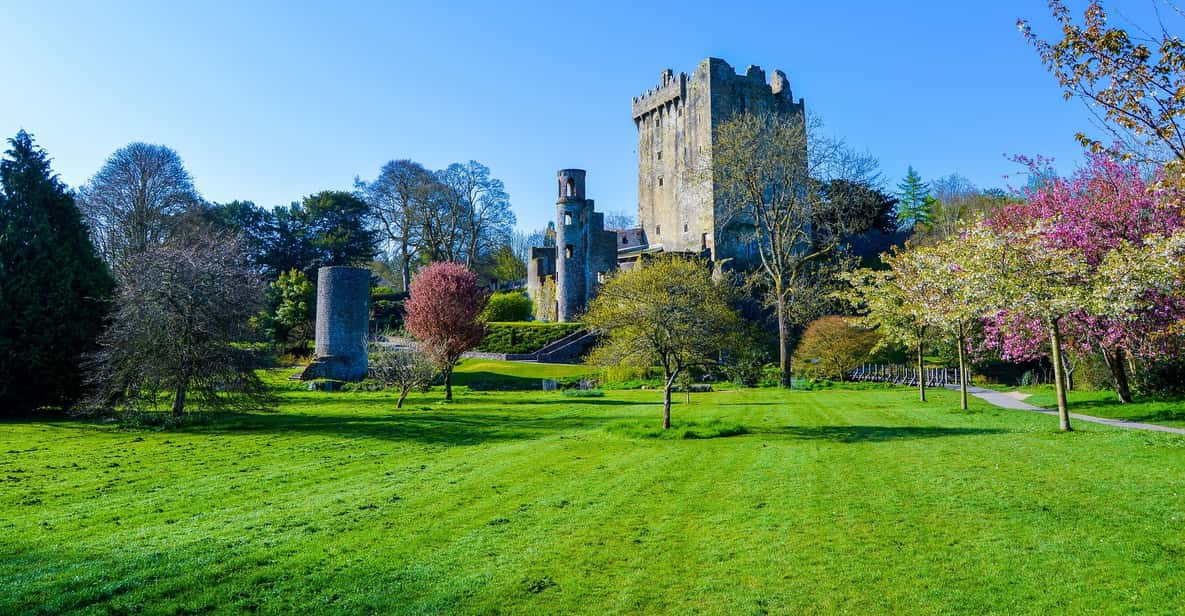Greece is famous for its beautiful beaches, ancient ruins, and rich culture. But now, the country faces a big challenge: climate change. Rising temperatures and frequent wildfires are changing how Greece’s tourism industry works. How can Greece adapt to these new challenges? Let’s explore what’s happening.
The Rising Temperatures: A New Reality for Greece
Greece’s warm climate has always been a big draw for tourists. But recently, the weather has been changing. In the summer of 2023, Greece experienced a long heatwave in June and the hottest July ever recorded. These extreme temperatures have caused popular tourist spots to close and have led to several heat-related deaths. This shows that Greece needs to adapt quickly.
Historical Climate Patterns
Greece used to have a mild climate that was perfect for tourism all year round. But over the past few decades, temperatures have been rising. Summers are getting hotter, and heatwaves are more common. This change is not just a fluke; it’s a new reality that Greece must face.
Recent Heatwaves and Their Impact
The heatwaves of 2023 were a wake-up call. The Acropolis in Athens had to close to protect visitors and the ancient site from the heat. Beaches saw fewer visitors as temperatures became dangerously high. Local businesses suffered because fewer tourists meant less income.
The health of both locals and tourists is at risk. Hospitals have seen more cases of heatstroke and dehydration. Greece, known for its hospitality, must ensure the safety of its guests.
Wildfires: A Growing Threat to Tourism
Rising temperatures aren’t the only problem. Wildfires are becoming more frequent and intense, threatening Greece’s tourism industry. These fires, fueled by hotter and drier conditions, can destroy natural landscapes and human settlements. A recent wildfire near Athens showed how dangerous these fires can be. They not only threaten lives and property but also scare away tourists, hurting the local economy.
The Science Behind Increased Wildfires
Wildfires aren’t new to Greece, but they’re getting worse. Scientists say this is due to longer droughts, higher temperatures, and changes in land use. The Mediterranean region, with its dense vegetation and dry summers, is especially prone to fires. Climate change makes these conditions worse, increasing the risk of wildfires.
Case Study: The Athens Wildfire
The wildfire near Athens in 2023 was a big warning. Flames got close to the city, forcing evacuations. The fire destroyed homes, businesses, and forests. The economic impact was immediate, with tourism in the area taking a big hit. The smoke over the city was a reminder of how fragile Greece’s natural beauty is.
The response to the Athens wildfire showed both the challenges and the resilience of the Greek people. Firefighters, volunteers, and local communities worked together to fight the fire. But the event also highlighted the need for better preparedness and fire management.
Government Interventions: Regulations and Reforms
To tackle these challenges, the Greek government has introduced new regulations to strengthen the tourism industry. These laws cover tourism agencies, guides, and rentals. They are part of a plan to make Greece a top global tourism destination. These measures are crucial for protecting the industry and ensuring it continues to contribute to the economy.
New Tourism Regulations
The new regulations aim to address the challenges of climate change and build a sustainable tourism industry. They include stricter guidelines for tour operators, better safety protocols for tourists, and incentives for eco-friendly businesses. By setting higher standards, Greece wants to keep its tourism sector competitive and resilient.
Economic Implications
Tourism is a major part of Greece’s economy, bringing in billions of euros each year and providing jobs for many people. By investing in sustainable tourism, Greece is protecting its natural and cultural assets and ensuring the long-term success of its tourism industry. The government’s proactive approach shows its commitment to balancing economic growth with environmental care.
Rethinking Tourism: Sustainable and Resilient Strategies
To succeed in this new climate reality, Greece must adopt sustainable and resilient tourism models. This means promoting alternative forms of tourism that are less affected by extreme weather and protecting natural resources and infrastructure. By doing so, Greece can offer unique experiences that align with the values of modern travelers who care about sustainability.
Alternative Tourism Models
One strategy is to diversify tourism offerings. While Greece’s beaches and historical sites will always attract visitors, there’s growing interest in alternative tourism that offers a more immersive and sustainable experience. This includes agritourism, where visitors engage with local farming communities, and ecotourism, which focuses on exploring Greece’s natural landscapes responsibly.
By promoting these alternative models, Greece can attract travelers who want more than just a beach holiday. These tourists are interested in connecting with local cultures, learning about sustainable practices, and helping preserve the environment. For Greece, this is an opportunity to showcase its rich heritage and natural beauty in a sustainable way.
Protecting Natural Resources and Infrastructure
Protecting Greece’s natural resources and infrastructure is key to sustainable tourism. This includes investing in renewable energy, improving water management, and preventing soil erosion and deforestation. By conserving the environment, Greece can safeguard its natural assets for future generations.
Investing in infrastructure that can withstand climate change impacts is also important. This includes upgrading transportation, improving waste management, and enhancing the resilience of buildings and public spaces. By building a more resilient infrastructure, Greece can ensure its tourism industry remains strong.
The Future of Greek Tourism: Balancing Growth and Sustainability
Looking ahead, Greece’s tourism industry must balance growth and sustainability. Long-term climate adaptation strategies are essential, as are efforts to engage local communities and tourists. By fostering a tourism model that respects the environment and supports local economies, Greece can remain a beloved destination for generations.
Long-term Climate Adaptation Strategies
Developing long-term climate adaptation strategies is crucial for Greek tourism’s future. This includes conducting climate risk assessments, developing early warning systems for extreme weather, and promoting sustainable land use and resource management. By taking a strategic approach, Greece can mitigate climate change impacts and ensure tourism resilience.
Engaging Local Communities and Tourists
Engaging local communities and tourists in climate adaptation is essential for sustainable tourism. This includes raising awareness of climate change impacts, encouraging responsible travel, and supporting community-led conservation. By fostering shared responsibility, Greece can create a tourism model that benefits both the environment and local communities.
Greece’s tourism industry is at a pivotal moment. As the nation faces climate change, it must adapt and innovate to ensure continued success. By embracing sustainable tourism models, investing in conservation, and engaging communities and tourists, Greece can navigate challenges and continue offering unforgettable experiences to travelers worldwide.





21 replies to “Greece’s Tourism in the Heat: Adapting to Climate Change”
Really happy to see articles shedding light on sustainable tourism. Protecting our natural resources is key for the future. Great job, thecontinental!
The historical climate patterns part was super interesting. Shows how much things are changing.
wonder how these new tourism regulations will impact small businesses. got to adapt, but it’s not always easy.
Are there specific alternative tourism models being considered? Interested to see more about this.
sounds good but will it work? tourism is huge for greece, too many rules might scare people off.
Great insight into a pressing issue. There’s hope if we adapt and change. Thanks for the article!
studying this at uni. the correlation between climate change and tourism is fascinating. need more sustainable practices.
It’s great seeing young people so invested in our planet’s future. Keep it up!
love greece can’t wait to go back hope things improve with these changes
Intriguing read! It’s vital we talk more about sustainable tourism. This article is a step in the right direction.
The examination of historical climate patterns provides crucial context. It’s essential for understanding the current crisis.
more sun is good for my tan but guess not so good for the planet huh gotta find balance.
Curious about the economic implications of these tourism regulations. There’s a lot at stake.
Preserving natural resources is key. Glad to see Greece taking steps!
Seems like every year theres a new plan. Will wait and see if this one actually works
Thinking about the future for our kids, this is important. Hope more countries follow suit.
how will this affect the prices for tourists? could end up being really expensive to travel safely.
Thrilled to see discussions on climate adaptation. It’s about time we take significant steps forward.
its really hot here in the summer glad to see we’re getting noticed for efforts to cool things down
wonder if there’s tech that can help with this. like better firefighting drones or something.
Impressive coverage on a critical issue. It’s pieces like these that inspire change.
Comments are closed.